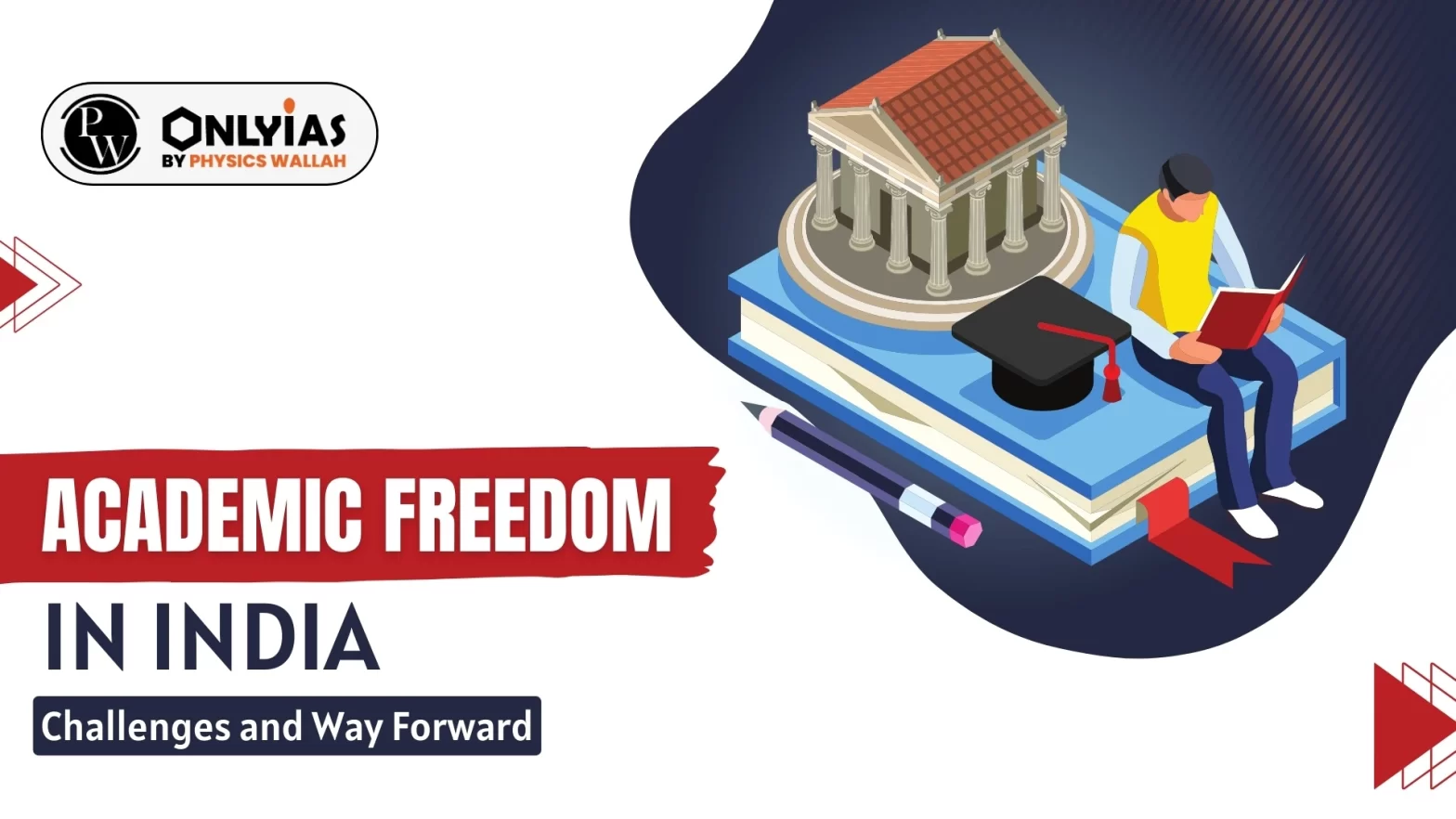Context:
This editorial is based on the news “The fading role of universities as conscience of society” which was published in The Hindu. The University Grants Commission (UGC)’s directive to universities and colleges in the country to install the Union Government’s Beti Bachao Beti Padhao (BBBP) logo on their premises is an attempt to curtail academic freedom.
- Earlier, universities and colleges were also asked to conduct activities such as generating awareness on G-20 meetings and Swachhatha campaigns.
| Relevancy for Prelims: V-Dem Institute of Freedom Ranking, Restriction on Fundamental Rights, Sedition law (Section 124A), and Section 295A (hurting religious feelings).
Relevancy for Mains: Academic Freedom in India- Challenges Faced and Way Forward. |
Aim of the Selfie Point
- To create awareness among the youth about India’s achievements in various fields, particularly the new initiatives under the National Education Policy 2020.
Earlier Instances of Autonomy Curtail
- Indian Institute of Science (IISc), the country’s top-ranking institute had to call off a discussion on the Unlawful Activities Prevention Act (UAPA), organized by its students and faculty.
- Last March, the Jawaharlal Nehru University (JNU) administration decided to impose fines to the tune of ₹20,000 for protesting on the campus, a decision withdrawn later.
- Resignation of two academic scholars at Ashoka University following the publication of a paper that argued that the ruling party won a disproportionate share of seats in the 2019 Lok Sabha polls.
Challenges With Such Directives
- Advancing the political agenda of the ruling regime.
- Diluting the academic institutes’ freedom and ability.
-
- It is impacting the agenda of teaching and research that generates new ideas.
- Political Consideration on Appointments: It has now become a common practice, both at the Central and State government levels, to make university appointments on political considerations rather than merit.
- It further their political interests, thus internally sabotaging the autonomy.
Declining Rank in Academic Freedom Index
- V-Dem Institute of the University of Gothenburg in Sweden: India’s academic freedom index is in the bottom 30% among 179 countries, according to last year’s report.
- On a scale of 0 (low) to 1 (high), India scored 0.38.
- Included Indicators: Freedom to research and teach; freedom of academic exchange and dissemination; institutional autonomy of universities; campus integrity; and the freedom of academic and cultural expression.
Also Refer: QS World University Rankings 2024
Academic Freedom in India
- Not Mentioned in the Constitution: Unlike in New Zealand, academic freedom is not mentioned in the Indian constitution.
- A Part of Fundamental Rights: It is subsumed in the concept of the right to free speech as a part of the fundamental rights.
- Restriction on Rights: A guaranteed principle in the Indian constitution, it is subject to reasonable restrictions on account of sovereignty, integrity, security, public order, and morality.
- The freedom of speech is often hindered by the application of sedition law (Section 124A) or more commonly misused clauses under Section 295A (hurting religious feelings). Defamation lawsuits are now becoming tools of harassment.
Way Forward
With the celebration of the 75th year of India’s existence as a Republic. It is time to remember Tagore’s vision of a nation, where the “mind is without fear”. The political parties, in the larger interest of the nation, must begin consultations with faculty bodies and students’ associations to change the current sorry state of academic freedom and autonomy in the country.
![]() 18 Jan 2024
18 Jan 2024

